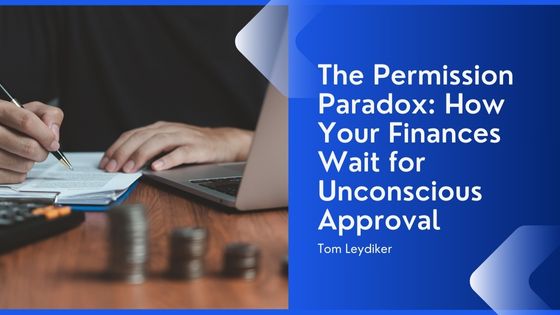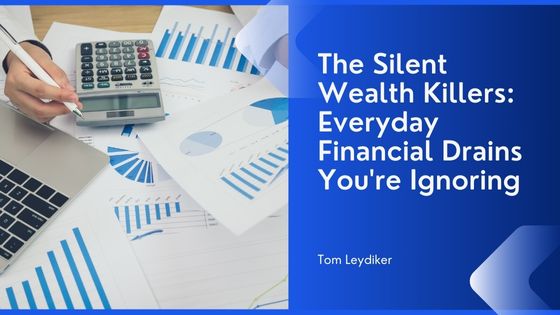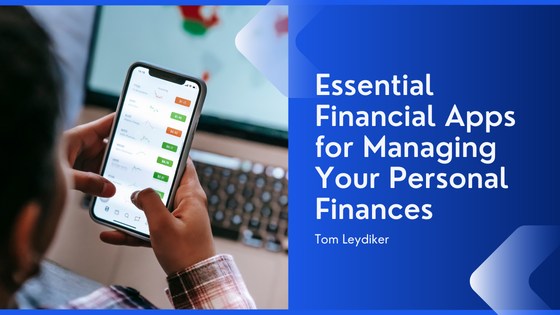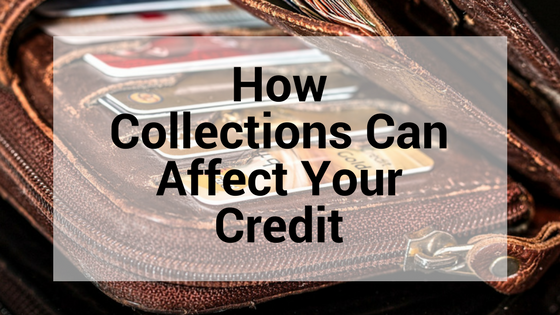Sarah, a high-earning attorney, couldn’t explain why her savings account remained perpetually empty despite her $200,000 annual income. She had created budgets, downloaded finance apps, and read countless money management books, but nothing changed her financial trajectory. During a breakthrough coaching session, she realized the invisible psychological barrier: “I’ve never given myself permission to be financially secure.”
This realization exemplifies what financial psychologists call “the permission paradox”—the phenomenon where our financial behavior is governed less by knowledge or resources than by unconscious permissions we’ve either granted or withheld from ourselves. Despite having ample information and capability, many people remain financially stuck until they address this deeper psychological dimension.
The permission paradox explains many puzzling financial behaviors:
- High-income professionals who continually live paycheck-to-paycheck
- Entrepreneurs who sabotage businesses as they approach significant profitability
- Investors who reflexively sell assets as they near certain valuation thresholds
- Individuals who receive windfalls but rapidly return to previous financial states
- Skilled negotiators who never apply their abilities to personal compensation
In each case, the limiting factor isn’t capability but permission. The individuals have unconsciously established boundaries around their financial possibility, creating invisible ceilings that technical knowledge alone cannot penetrate.
These permission boundaries typically originate from three primary sources:
- Formative Experiences
Our earliest exposures to money create powerful imprints that establish boundaries of financial possibility. Children who witness financial struggle often internalize scarcity as normal, while those who observe money conflict may develop permissions that prioritize peace over prosperity.
Mark, who grew up watching his parents’ bitter arguments over finances, discovered that his adult money avoidance stemmed from an unconscious permission structure: “I’d rather earn less than deal with money conversations that could create conflict.” This permission, while originally protective, limited his earning potential for decades until recognized and revised.
- Social Identity Construction
We develop permissions that align with our core identity narratives and social groups. People who identify as creative, spiritual, or service-oriented often withhold permission for wealth accumulation based on perceived conflicts with their essential character.
“I always saw myself as an artist, and in my mind, artists weren’t supposed to be financially successful,” explains Elena, a graphic designer who unconsciously sabotaged client relationships whenever her income approached six figures. “I needed to give myself explicit permission to be both creative and prosperous before my behavior could change.”
- Protective Adaptations
Many permission structures originate as psychological protections against potential threats. If wealth triggered family jealousy or community exclusion in your past, your permission structure might limit financial success to avoid these anticipated negative consequences.
James, who grew up in an economically depressed community, discovered his success ceiling resulted from an unconscious rule: “If I become too successful, I’ll lose connection with my roots.” This permission structure kept his business artificially small until he developed more sophisticated ways to maintain important relationships while allowing financial growth.
The most challenging aspect of the permission paradox is that these boundaries operate outside conscious awareness. People experience the effects—persistent financial limitation despite knowledge and opportunity—without recognizing the cause. This leads to cycles of frustration, self-blame, and ineffective solutions focused on surface behaviors rather than underlying permissions.
Transforming permission structures requires specific interventions that address this deeper psychological level:
- Permission Archaeology
The first step involves excavating your existing permission structure through structured reflection. Key questions include:
- What financial situations make you inexplicably uncomfortable?
- What were the money messages in your family of origin?
- Which financial achievements would feel “not like you”?
- What negative consequences do you unconsciously associate with financial success?
- Whose approval or disapproval still influences your financial behavior?
This exploration often reveals surprising boundaries. One client discovered her savings had remained precisely below her unemployed father’s annual income for decades—an unconscious loyalty permission that limited her prosperity to avoid triggering his insecurity.
- Permission Reconstruction
Once existing permissions are visible, they can be deliberately restructured. This process involves:
- Creating explicit written permissions that counter limiting beliefs
- Developing visualization practices that normalize new financial possibilities
- Identifying and processing the emotions associated with permission expansion
- Establishing relationships with individuals who model expanded permissions
- Taking graduated actions that extend slightly beyond current permission boundaries
Effective permission reconstruction addresses both cognitive understanding and emotional acceptance. Many people intellectually recognize their permission limitations but remain emotionally bound by them until deeper work occurs.
- Identity Integration
Sustainable financial transformation requires integrating new permissions with core identity. This integration prevents the “snap-back” effect where temporary changes revert to baseline as identity reasserts itself.
Approaches that facilitate this integration include:
- Reframing wealth as an extension of core values rather than a contradiction
- Identifying meaningful purposes for expanded financial capacity
- Developing narratives that connect financial success with authentic self-expression
- Creating community with others who share both your values and expanded permissions
This integration is particularly important for individuals whose identity includes non-materialistic values. Rather than rejecting these values, successful integration shows how expanded financial permissions actually enable their fuller expression.
- Environment Restructuring
Permission structures are continuously reinforced or challenged by our environments. Sustainable change requires adjusting our surroundings to support expanded permissions through:
- Restructuring physical spaces to reflect new financial possibilities
- Recalibrating social relationships that reinforce limiting permissions
- Creating accountability systems specifically focused on permission expansion
- Modifying information inputs to normalize new financial thresholds
These environmental adjustments prevent unconscious regression to previous permission structures through constant external reinforcement.
The permission paradox reveals why traditional financial education often fails to create change—it addresses what to do without addressing whether you’ve given yourself permission to do it. Technical knowledge remains inert until activated by internal authorization.
For those facing persistent financial limitations despite knowledge and opportunity, the most powerful question isn’t “What should I do?” but rather “What have I given myself permission to achieve?” The answer often reveals the true barrier to financial transformation.





